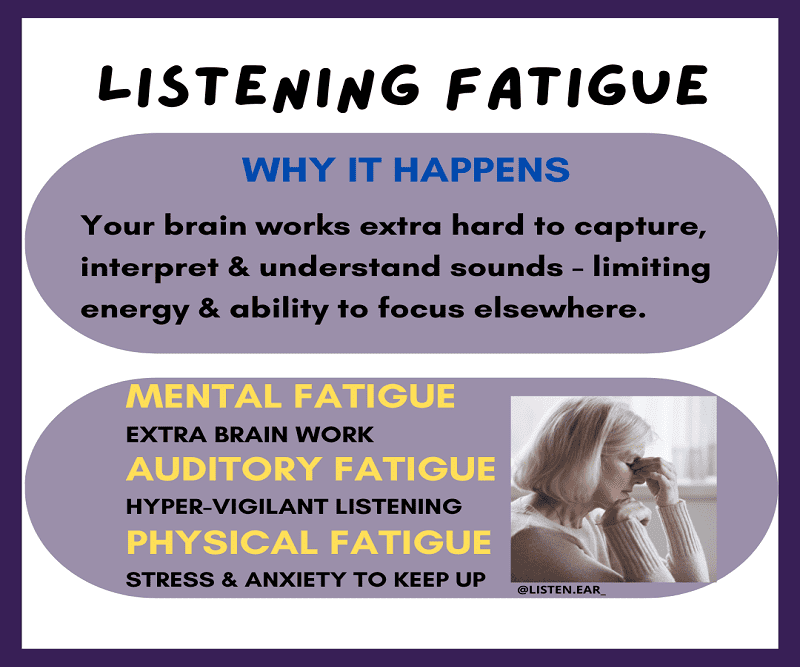We recently learned that Charlotte Eye, Ear, Nose & Throat Associates (CEENTA) stopped providing audiology services in their Salisbury location. So, if you have received hearing healthcare services or have been fitted with hearing devices, we are honored to take over your care, so you don’t have to drive down to their Concord office. Since CEENTA is a medical facility, they fit the same type of devices as we do. Most retail locations, on the other hand, have their hearing devices “locked” so you must return to another franchised location if a store closes their doors. That is not the case in this situation. Please, know we are here to help.
Now that we got that bit of information out of the way, consider these scenarios: “Harry meets a friend but after an hour, he wants to sit alone in the quiet for a while; Beth goes to the doctor’s appointment and by the time she leaves, she is ready for a nap; Carter goes to an event with the family and as the event continues, he finds it more challenging to understand what everyone is saying and starts to daydream.
These people are likely experiencing auditory fatigue. Auditory fatigue is real and is experienced on occasion by many people with hearing loss, whether deaf or hard of hearing in one ear or both, or whether their hearing loss is mild, moderate, severe, or profound.
Why does auditory fatigue happen? When you have a hearing loss, your brain uses more areas to try to make sense of the sounds and words you are hearing and to figure out the words you did not hear. Your brain works harder to hear and understand a message if it is not clear or if you are listening in background noise. The brain has a heavier processing load to figure out messages that are missed, tuning out noise in the room, and other listening tasks. When the brain works harder to hear and understand, that increases stress and the feeling of fatigue.
So, what happens when someone experiences auditory fatigue? When you are fatigued, whether you are aware of it or not, your body responds. Some changes are hidden, such as increased cortisol, a stress hormone, but there are some warning signs that are easier to identify, including: headaches, increased feeling of stress, increased feeling of being tired or wanting to be in quiet, challenges with concentrating as a conversation continues, challenges with performance at work or school-especially at the end of the day.
How can auditory fatigue be prevented? The use appropriate amplification reduces listening effort by providing the brain the speech information that the ears are not detecting properly. Consider using assistive listening devices which can improve the signal over the background noise. Strategically select where you sit by situating yourself near a key speaker or those you most want to hear and away from noise sources like music speakers, kitchen noise, and heating and cooling systems. And know that it is okay to take listening breaks.
By acknowledging, identifying, preventing, and managing auditory fatigue, people who are deaf or hard of hearing may increase their ability to participate in activities longer, stay more engaged and feel better after. Sounds like the goals of our Functional Hearing Assessment (FHA) we use to develop individual hearing treatment plans.
So, if you are experiencing auditory fatigue, give Jamie or Diane a call to schedule your FHA. Be sure to visit our website at www.hearingsolutionsofnc.com and like us on Facebook. Dr. Mussler, Jane, Cheryl and I look forward to seeing you soon.

